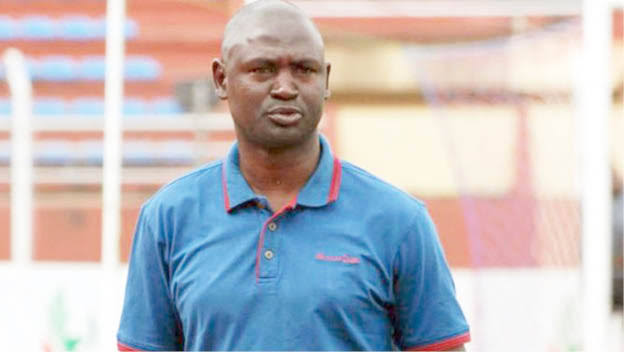Nigeria Sports Development Initiatives have taken center stage in recent months, marking a pivotal chapter in the nation’s sporting history. What might, at first glance, appear as a collection of announcements and medal celebrations is, in reality, a tapestry of ambition, reform, and the promise of a brighter future for Nigerian sports. As the government sharpens its focus and stakeholders rally around the promise of youth, a deeper story emerges—one not just of results but of transformation and national aspiration.
A renewed government commitment to sports as a catalyst for change
For any nation, sport is more than a contest of strength and skill—it is a mirror reflecting social progress, unity, and economic momentum. Nigeria’s vice president, Kashim Shettima, affirmed this sentiment during a recent press briefing. By placing sports at the heart of the national development strategy and economic agenda, his words carried a weight felt far beyond the echoing applause in the room. Shettima’s vision frames sports not simply as entertainment but as infrastructure, education, diplomacy, and an engine of youth employment and economic transformation.
This philosophical shift from seeing football pitches and tracks as stages for play, to recognizing them as launchpads for socio-economic development, marks a profound change. The victories registered by Nigeria’s female teams, such as D’Tigress with their AfroBasket triumph, and the Super Falcons clinching the Women’s African Cup of Nations, are lauded not just for the glitter of silverware but as milestones for gender equality and national pride. The government’s response, emphasizing decisive action over mere celebration, can spur a cycle where sporting heroes feed into Nigeria’s broader aspirations.
Pain points of the domestic leagues and calls for structural reform
However, glory on the continental stage cannot overshadow the challenges festering in Nigeria’s domestic sports structure. The voices from home are sober and insistent. Kabiru Dogo, coach of Wikki Tourists of Bauchi, captured the systemic issues in the Nigerian Professional Football League. He highlighted a painful reality—most players and coaches in domestic football operate without valid contracts or proper adherence to agreements, placing them at the mercy of club owners and undermining professional standards.
These stories highlight deep-seated issues—talents are exploited, agreements disregarded, and dreams put at risk. Dogo’s call to the Nigeria Football Federation is a clarion one, arguing that meaningful reform must start with basic protections such as proper contracts and clear education about rights and responsibilities. There is strong consensus that, for Nigerian football and other sports to thrive, domestic operations must match international standards, offering professionalism, security, and respect commensurate with the country’s sporting ambitions.
The next generation shines bright at the African School Games
If Nigerian sports are to forge a new identity, the most fertile ground is talent nurtured from the grassroots. The African School Games in Algeria offered a spectacular showcase of Nigeria’s future. Hon. Bukola Olopade, Director General of the National Sports Commission, arrived in Algeria with a goal—support the nation’s rising stars, not from afar but with presence and encouragement at trackside. Nigeria’s junior athletes responded, securing six medals in a single day, a testament to both their individual brilliance and the country’s growing investment in youth development.
The impact of initiatives like the Invited Junior Athletes (IJA) program is tangible, evidenced by the medal haul and the poise of athletes like Miracle Ezechukwu and Rosemary Chigozie Nwankwo. These two young women, swapping gold and silver in different sprint events, exemplify the spirit of healthy competition and mutual uplift. In the medley relays, both boys’ and girls’ teams showcased remarkable teamwork, translating scout-led recruitment and disciplined coaching into podium finishes.
Olopade’s praise extended beyond those who claimed medals, encompassing the entire delegation and the coaches guiding them. His belief in intentional scouting, strategic investment, and robust coaching structures was clear—a strong pipeline is not just built on natural talent, but on careful cultivation and systematic opportunity. As he put it, “These athletes are more than medalists—they are the future of Nigerian sports, and we will continue to invest in them.”
The wider impact of female athletes and a blueprint for gender equality
Nigeria’s recent sporting conquests have placed female athletes in the spotlight like never before. From the football field to the basketball court and athletics track, women are rewriting records and reshaping perceptions. Vice President Shettima’s remarks following D’Tigress’s AfroBasket glory were more than congratulatory—they were a rallying cry for a new era. By recognizing the unbroken line of success from the Super Falcons to athletes on the world stage, the government places women’s achievement as central to the national sporting narrative.
This focus does more than boost morale—it carves out a blueprint for nurturing gender equality, both within sports and in broader society. The stories of these remarkable women show that when opportunity meets preparation, Nigerian excellence is inevitable.
Grassroots programs and the road ahead
Beneath the headlines and official pronouncements lies the true engine of progress: grassroots initiatives that identify and nurture the next generation. The National Sports Commission’s commitment to supporting junior athletes, evidenced by boots-on-the-ground engagement at events like the African School Games, is bearing real fruit. Notably, the IJA program has become a hallmark of success in youth development, showing what can be achieved with intentional leadership and investment.
The recent decision for Nigeria to host the 2027 African School Games further strengthens this commitment, providing incentive to deepen structural reforms and create pathways for young talent. As grassroots programs continue to mature, it is not just medals but future leaders, coaches, and role models that will emerge.
A call for unity, professionalism, and sustained ambition
The narrative unfolding around Nigeria Sports Development Initiatives is one of honest recognition of past failings and determined steps toward a better future. The integration of sports into the national development strategy, support for junior and female athletes, and advocacy for structural integrity in domestic leagues form a multi-layered approach. Each thread weaves into a vision of Nigeria where sports uplift not just athletes but the spirit and destiny of the nation.
The challenges are real, as are the opportunities. For every contract yet to be honored or young talent yet to be discovered, there is now a clear intention—strive for elevated standards, invest in youth, uphold gender equality, and never lose sight of the broader mission. In the hands of passionate athletes, visionary administrators, and a supportive populace, Nigeria’s journey of sports-led transformation is only just beginning.





